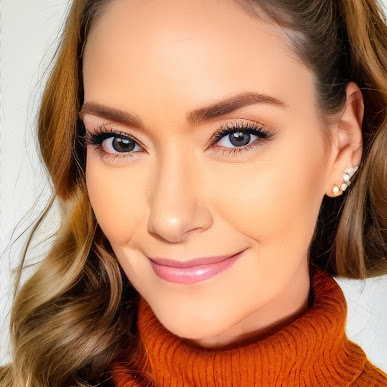Introduction: Why Canadian Weddings Need Custom Budgeting
Wedding budgets are often the most stressful part of planning, and in Canada — with its vast geography, multi-cultural traditions, and fluctuating provincial economies — it’s even more important to get it right. From small rustic ceremonies in Nova Scotia to luxury downtown Toronto receptions, Canadian weddings vary wildly in cost. That’s why a detailed, region-aware breakdown is not just helpful — it’s essential.
According to WeddingWire Canada and The Knot’s 2025 Global Report, the average Canadian wedding costs between $30,000–$42,000 CAD, depending on guest count, location, and overall aesthetic. But those numbers can easily balloon without smart planning. Let’s break it down by category.

Estimated Wedding Budget Distribution in Canada
Before we dive into specifics, here’s a general breakdown by percentage, which you can later apply to your total planned budget:
- Venue, Catering & Rentals – 40–50%
- Photography & Videography – 10–15%
- Clothing & Attire – 5–8%
- Decor & Flowers – 7–10%
- Entertainment – 5–8%
- Wedding Planner – 5–10%
- Stationery – 2–4%
- Beauty (Hair, Makeup) – 2–3%
- Transportation – 1–3%
- Gifts & Favours – 2–3%
- Emergency / Miscellaneous – 5–10%
Let’s look at each area in depth, with real-world price ranges based on current 2025 rates in different Canadian provinces.
Venue, Catering & Rentals
Estimated Budget: $12,000–$18,000+
For most Canadian couples, the venue and catering make up the biggest expense. This typically includes the venue rental fee, catering per head, alcohol (if not provided by the venue), linens, tables, chairs, and service staff.
In Toronto, a mid-range venue starts at $8,000 CAD for space rental alone, with catering ranging from $80–$200+ per guest. In smaller towns or rural areas like Prince Edward County or Kelowna, you may find lovely venues under $5,000 — but food costs remain similar.
Pro Tip: Look for all-inclusive venues or banquet halls in Ontario, Alberta, or BC that provide bundled packages with catering, rentals, and even basic florals.
Photography and Videography
Estimated Budget: $3,000–$6,000
Hiring a professional wedding photographer in Canada typically costs between $2,500 and $4,000, depending on hours of coverage and experience level. Add $1,500–$3,000 more for videography.
Don’t skimp here — these are your lifelong memories. Ask if photographers include engagement sessions or a second shooter in their packages.
Bridal Gown, Groom’s Attire & Accessories
Estimated Budget: $2,000–$4,000
The average Canadian bride spends $1,500–$2,500 on a wedding dress (including alterations), while grooms spend between $500–$1,000 on suits or tuxedos. Don’t forget shoes, veils, cufflinks, ties, undergarments, and jewelry.
Renting a tux can cost $200–$400, while designer gowns easily top $4,000+.
Flowers and Decor
Estimated Budget: $2,000–$4,000
Floral arrangements typically include bouquets, boutonnieres, ceremony florals, centerpieces, and accent décor. Average floral budgets in Canada range from $1,500 for modest arrangements to $5,000+ for lush installations.
Consider seasonal flowers to cut costs — for example, peonies in May or dahlias in August. Also consider blending real + faux florals, which is becoming a trend in 2025 for eco-conscious weddings.
Music and Entertainment
Estimated Budget: $1,500–$4,000
Whether you’re hiring a DJ or live band, expect to pay at least $1,200–$1,800 for 6 hours of music. Live bands can cost $2,500–$5,000+ depending on ensemble size and city.
In Quebec and British Columbia, many couples incorporate traditional musicians or cultural performances, which may raise the entertainment portion of the budget.
Wedding Planner or Coordinator
Estimated Budget: $2,500–$6,000 (or 10–15% of total budget)
Hiring a wedding planner is an investment that pays off — especially for large weddings. Full-service planners in Canada often charge 10–15% of the total wedding cost, while “day-of coordinators” are a more affordable option at $1,000–$2,000.
According to Toronto-based wedding planner Jenna Philips:
“Couples underestimate how many moving parts exist on the wedding day. A good planner keeps the day on track and prevents expensive mistakes.”
Invitations and Stationery
Estimated Budget: $500–$1,500
This includes save-the-dates, invitations, RSVP cards, envelopes, postage, thank-you cards, menus, place cards, and signage. Printed invitations in Canada can cost $5–$10 per set, while custom designs or letterpress can go up to $15+ each.
Consider going partially digital with RSVP forms or save-the-dates to reduce paper use and costs.
Hair and Makeup
Estimated Budget: $500–$1,000
Bridal hair and makeup typically range from $300–$500, including trials. Add $100–$200 per bridesmaid or mother if they’re getting professional styling too.
Ensure your artist has experience with your skin type, tone, and texture — especially important in multicultural weddings.
Transportation
Estimated Budget: $300–$800
This includes limousines, vintage cars, or shuttle buses for guests. In cities like Montreal or Calgary, a 4-hour limo rental runs about $400–$600. For remote venues, chartering a shuttle bus may be necessary.
Wedding Favours & Party Gifts
Estimated Budget: $300–$800
Many Canadian couples spend $3–$6 per guest on wedding favours, ranging from local maple syrup to mini candles, succulents, or custom cookies. Don’t forget wedding party gifts like robes, flasks, or jewelry.
Legal and Marriage License Fees
Estimated Budget: $100–$200
Marriage license fees vary by province. For example:
- Ontario: $145
- Alberta: $80
- Quebec: $143
- British Columbia: $100
Also consider the cost of hiring an officiant — typically $300–$600 in Canada.
Honeymoon (Optional, but Often Included)
Estimated Budget: $3,000–$6,000
Some couples factor their honeymoon into the wedding budget, others keep it separate. All-inclusive packages in Mexico, Cuba, or Dominican Republic are popular for Canadians, with average costs ranging from $2,800–$5,000 per couple.
Buffer, Emergencies & Miscellaneous
Recommended: 5–10% of total budget
Always keep a contingency fund for last-minute costs: vendor overtime, unexpected rentals, weather-related plan changes, gratuities, or add-ons. For a $35,000 wedding, this means setting aside $1,750–$3,500 just in case.
Sample Budget Allocation (Based on a $35,000 Wedding in Toronto)
| Category | Estimated Cost (CAD) |
| Venue & Catering | $17,500 |
| Photography & Video | $4,000 |
| Dress & Suit | $3,000 |
| Flowers & Decor | $3,000 |
| Entertainment | $2,000 |
| Planner | $2,500 |
| Stationery | $800 |
| Beauty & Makeup | $700 |
| Transportation | $600 |
| Favours & Gifts | $500 |
| Marriage License | $150 |
| Buffer / Extra | $2,250 |
| Total | $37,000 |
Note: Prices are based on 2025 averages and may vary by city, season, and vendor.
Final Thoughts: The Budget Is the Foundation of a Happy Wedding
Every wedding is different — and that’s the beauty of it. Whether you’re going big or keeping things intimate, building a realistic and flexible budget is the first step toward a wedding day you can fully enjoy.
Plan smart, save for the unexpected, and remember: The most meaningful part of your celebration isn’t the price tag — it’s the people, promises, and memories you’ll carry into married life.









Leave a Reply